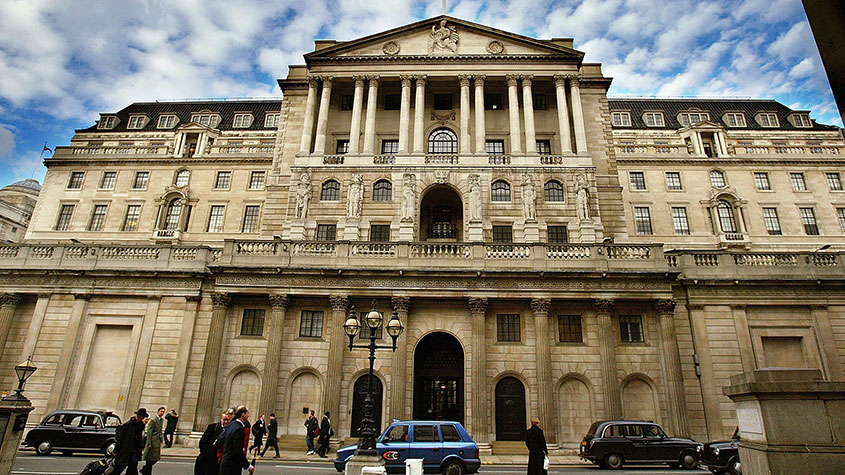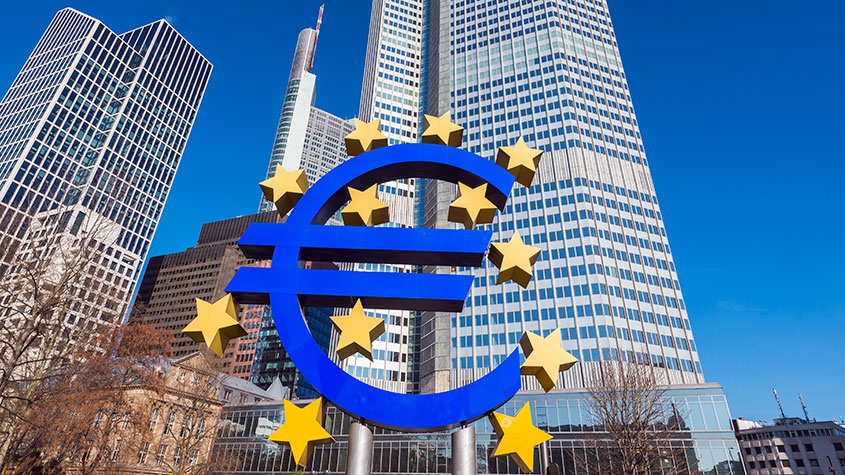There's no easy solution to Europe's woes - so plan for disaster
Markets are rebounding as investors await the next 'solution' to Europe's problems. But there are more nasty surprises to come before it is all over, so prepare for the worst. John Stepek explains how.

Get the latest financial news, insights and expert analysis from our award-winning MoneyWeek team, to help you understand what really matters when it comes to your finances.
You are now subscribed
Your newsletter sign-up was successful
Want to add more newsletters?

Twice daily
MoneyWeek
Get the latest financial news, insights and expert analysis from our award-winning MoneyWeek team, to help you understand what really matters when it comes to your finances.

Four times a week
Look After My Bills
Sign up to our free money-saving newsletter, filled with the latest news and expert advice to help you find the best tips and deals for managing your bills. Start saving today!
Markets are rebounding this morning. Everything from gold to stocks is on the up.
Why? The truth is, it's probably just market physics. There's only so far that prices can fall before they need to take a breather.
The pundits, of course, need to find reasons for the rise. Most are putting it down to 'hopes' of a deal on Europe being reached.
MoneyWeek
Subscribe to MoneyWeek today and get your first six magazine issues absolutely FREE

Sign up to Money Morning
Don't miss the latest investment and personal finances news, market analysis, plus money-saving tips with our free twice-daily newsletter
Don't miss the latest investment and personal finances news, market analysis, plus money-saving tips with our free twice-daily newsletter
But we've been here before. For all the encouraging noises being made by politicians, we suspect Europe has some more nasty disappointments to spring on the market.
Europe scrabbles for a bigger safety net
The main fear bothering investors right now is that Europe will end up giving us the 2011 equivalent of the Lehman Brothers collapse.
Yes, last week's sell-off was sparked by disappointment with the Federal Reserve's 'Operation Twist'. But that's because the markets were hoping that Ben Bernanke would somehow put a crash mat in place that would stop anyone from getting hurt when Greece goes bust.
So all eyes are on the next big 'solution' to the European problem. The new cunning plan is to create a bigger bail-out fund. Peter Spiegel sums it all up in this morning's FT.
The existing bail-out fund, the European Financial Stability Facility (EFSF), doesn't have enough firepower. The way it's currently structured, it has a capacity of about €250bn (the headline figure is €440bn, but it can't actually lend that much).
So the idea is to do two things: give the EFSF more powers, and give it more money. The idea is that a chunkier EFSF would be able to pump money into the more fragile eurozone banks. It would also be able to buy dodgy sovereign bonds, buying time (yet again) for countries to reform themselves.
With this safety net in place, Greece's debt could be restructured, and everyone could stop fretting about the other eurozone countries. Sounds simple, eh?
It might be simple if only one country were making the decisions. But of course, that's not the case.
Germany votes on whether to give the EFSF expanded powers this Thursday. If they block it which seems unlikely that would be 'game over' for that particular grand scheme.
But this is just the beginning. When and if the restructured EFSF is approved, Europe needs to figure out how to make it bigger. There are various ideas about how to do this. The trouble is that the most effective ones basically rely on turning the EFSF into a backdoor route for the European Central Bank to print money, and the Germans won't like that idea.
As I already mentioned, the Europeans have run out of 'sneaky' solutions to the problem. They're still trying to find them, but unless the Germans turn around and agree to shouldering the debt burdens of most of the rest of Europe, then it's not going to happen.
So a lot more arguing and making and breaking of plans lies ahead for the eurozone. And the longer it takes them to hammer out a deal, the more likely it becomes that events will overtake them.
In short, if markets are rising today because of 'hopes' for the eurozone, you can almost certainly expect them to start falling again in the near future. Because those hopes are going to be raised, then dashed, then raised and dashed again several times between now and a Greek default.
Stay defensive and hang on to gold
What does this mean when it comes to your investments? Again, it's another reason to keep your portfolio positioned defensively. There are some attractive opportunities in European stocks indeed, my colleague David Stevenson recently pointed one out, and Paul Hill also suggested two in the current issue of MoneyWeek magazine but there's also likely to be plenty of upheaval ahead, so valuations could go even lower.
Julian Pendock of Senhouse Capital says their European Focus fund remains invested mainly in "high quality global franchises and stable dividend-paying stocks". He's also avoiding European financials. The problem, he says, is that "it is still unknown whether losses on sovereign debt will be absorbed by taxpayers or by the holders".
As for gold, Dominic Frisby will be giving his latest views in Money Morning later this week. And my colleague Merryn Somerset Webb explains why she's happy to hang onto it in her blog.
All I'd say is this: did gold fall because the global economy suddenly became a lot more stable? Did it fall because governments have finally decided to start defending their currencies and raising interest rates? No. If anything, the way is being paved for even more debasement the Bank of England is on the verge of re-starting quantitative easing, and if Europe does make it out of this in one piece, it'll be at the expense of the euro. So I don't see any reason to sell your gold yet.
Our recommended article for today
Where is safe for investors now?
As it beomes clear that the US and Europe are heading for a double-dip recession, stockmarkets are hurtling downwards and even gold has joined in the slide, Merryn Somerset Webb looks for safe places to hide.
This article is taken from the free investment email Money Morning. Sign up to Money Morning here .
Get the latest financial news, insights and expert analysis from our award-winning MoneyWeek team, to help you understand what really matters when it comes to your finances.

-
 Pension Credit: should the mixed-age couples rule be scrapped?
Pension Credit: should the mixed-age couples rule be scrapped?The mixed-age couples rule was introduced in May 2019 to reserve pension credit for older households but a charity warns it is unfair
-
 Average income tax by area: The parts of the UK paying the most tax mapped
Average income tax by area: The parts of the UK paying the most tax mappedThe UK’s total income tax bill was £240.7 billion 2022/23, but the tax burden is not spread equally around the country. We look at the towns and boroughs that have the highest average income tax bill.
-
 How have central banks evolved in the last century – and are they still fit for purpose?
How have central banks evolved in the last century – and are they still fit for purpose?The rise to power and dominance of the central banks has been a key theme in MoneyWeek in its 25 years. Has their rule been benign?
-
 Do we need central banks, or is it time to privatise money?
Do we need central banks, or is it time to privatise money?Analysis Free banking is one alternative to central banks, but would switching to a radical new system be worth the risk?
-
 The French economy's Macron bubble is bursting
The French economy's Macron bubble is burstingCheap debt and a luxury boom have flattered the French economy. That streak of luck is running out.
-
 The Bank of England can’t afford to hike interest rates again
The Bank of England can’t afford to hike interest rates againWith inflation falling, the cost of borrowing rising and the economy heading into an election year, the Bank of England can’t afford to increase interest rates again.
-
 Bank of England raises interest rate by 0.5%
Bank of England raises interest rate by 0.5%News The Bank of England has raised interest rates once again, this time by 0.5%. This takes the bank’s base rate to 3.5%, the highest it’s been since 2008.
-
 Eurozone inflation hits 10.7% in October
Eurozone inflation hits 10.7% in OctoberNews Inflation across the eurozone hit 10.7% in October. What does it mean for your money?
-
 A forgotten lesson on the dangers of energy price caps
A forgotten lesson on the dangers of energy price capsAnalysis Liz Truss’s proposed energy price cap is an ambitious gamble. But a similar programme in Spain ended up being a fiasco, say Max King and Tom Murley. Here, they explain why Truss’s plan could be doomed to failure.
-
 Central banks can’t solve our current economic problems
Central banks can’t solve our current economic problemsAnalysis Traditionally, as we hit recessionary times, central banks have lowered interest rates. But that’s not an option this time. If anyone can help dull the economic pain, it’s not the Bank of England, it’s the government. John Stepek explains why.